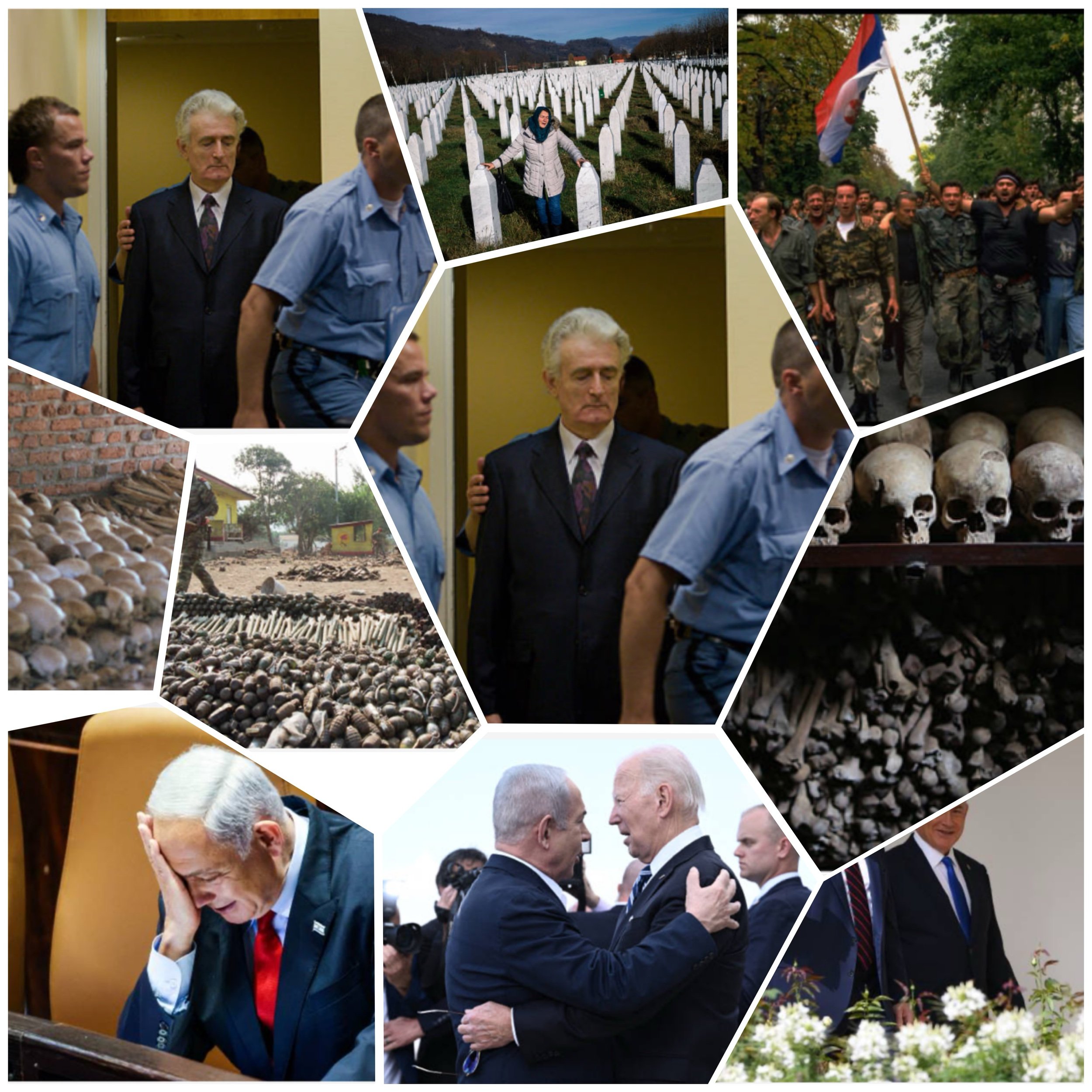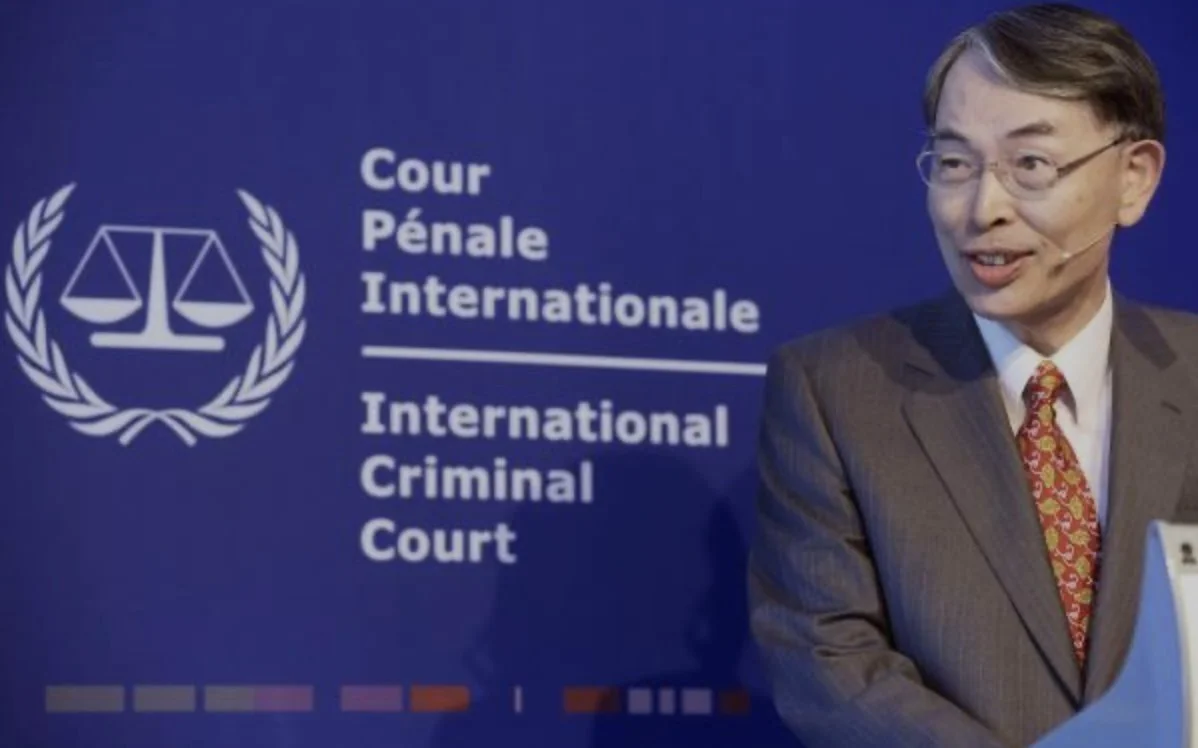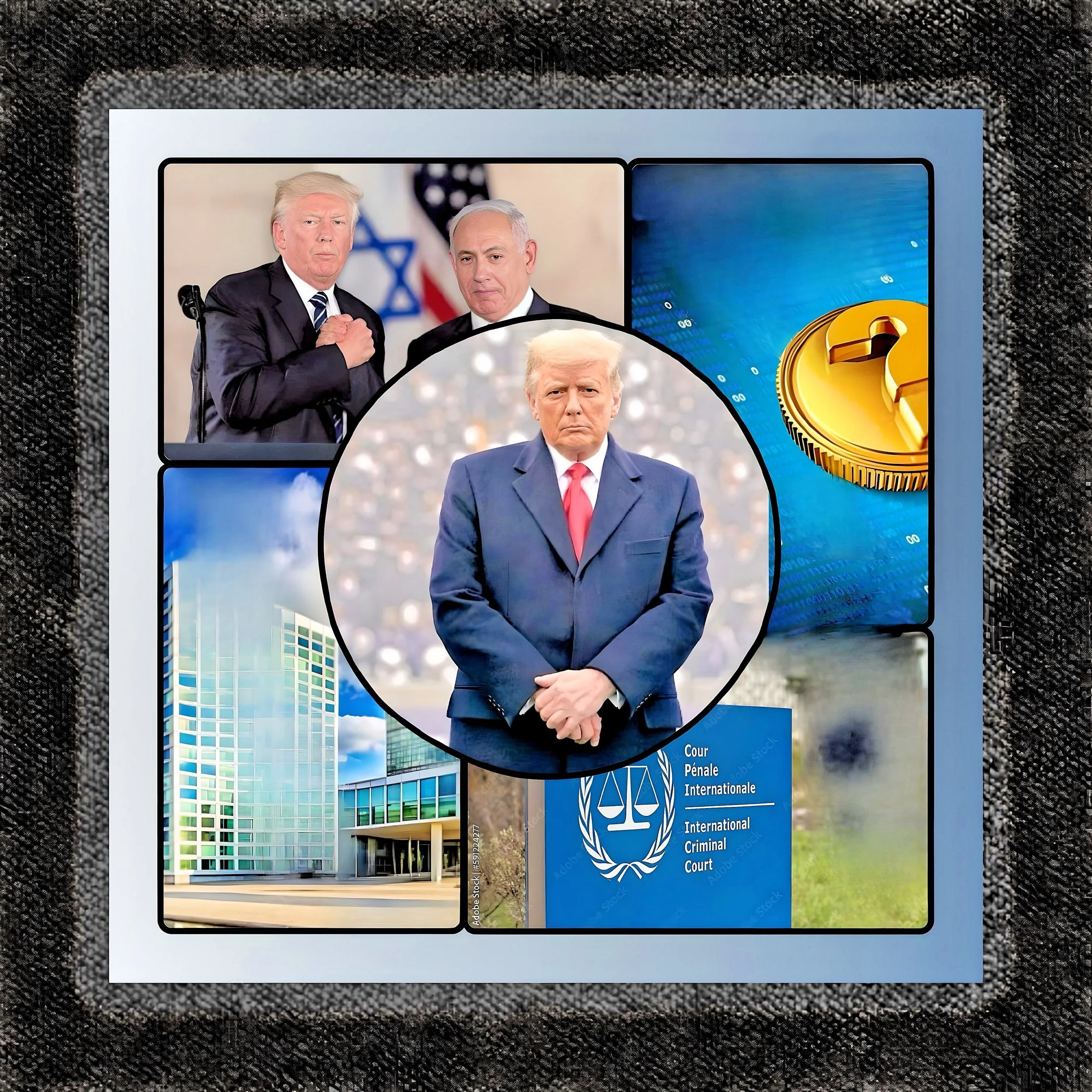What is comparison between Rodovan and Netanyahu- Genocide & war crimes
Introduction
Radovan Karadžić’s Conviction for Genocide and Comparison to Netanyahu
History
Radovan Karadžić, the former President of Republika Srpska during the Bosnian War, was indeed convicted of genocide. In 2016, he was found guilty by the International Criminal Tribunal for the former Yugoslavia (ICTY) of genocide, war crimes, and crimes against humanity, particularly for his role in the Srebrenica massacre where thousands of Bosniak men and boys were killed. He was sentenced to 40 years in prison, a sentence that was later increased to life imprisonment upon appeal in 2019.
Comparison to Netanyahu
The comparison between Radovan Karadžić and Israeli Prime Minister Benjamin Netanyahu primarily revolves around their leadership during periods of intense conflict and allegations of human rights abuses.
Nature of Allegations:
Karadžić:
His conviction was specifically for orchestrating a campaign of ethnic cleansing against Bosniaks and Croats during the Bosnian War. The ICTY found him guilty of direct involvement in genocide, particularly in Srebrenica, where he aimed to eliminate Bosniak males as part of a broader strategy to create an ethnically homogeneous state.
Netanyahu:
Recently, Netanyahu has faced arrest warrants from the International Criminal Court (ICC) for alleged war crimes related to his actions during the ongoing conflict with Hamas, particularly accusations that he intentionally deprived civilians in Gaza of essential supplies such as food and medicine. These actions are framed within the context of international humanitarian law violations during military operations.
Political Context:
Karadžić:
He rose to power amid the chaos of the Yugoslav Wars, using nationalist rhetoric to consolidate control and justify military aggression against perceived enemies. His leadership style was characterized by a strongman approach that disregarded international norms.
Netanyahu:
Similarly, Netanyahu has utilized nationalist sentiments to bolster his political position, particularly in response to threats from Hamas. His government has faced criticism for its hardline policies and perceived failures in managing the humanitarian aspects of the Gaza conflict. Like Karadžić, he has been accused of prioritizing political survival over adherence to international law.
International Response:
Karadžić:
His trial and conviction were part of a broader international effort to hold leaders accountable for war crimes following the atrocities in the Balkans.
Netanyahu:
The ICC’s actions against him represent a significant moment in international law, highlighting ongoing tensions regarding accountability for military actions. Netanyahu’s government has rejected these charges as politically motivated and biased against Israel.
Conclusion
Both figures are associated with severe allegations related to wartime conduct, their contexts differ significantly—Karadžić’s actions led directly to genocide during a civil war, while Netanyahu’s alleged crimes are situated within an ongoing conflict characterized by complex geopolitical dynamics. The implications of their actions continue to resonate within international law discussions and political narratives surrounding conflict resolution and accountability.






